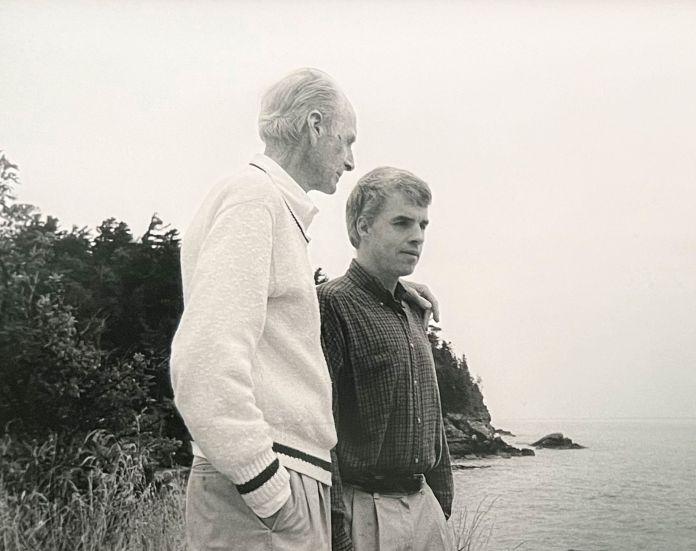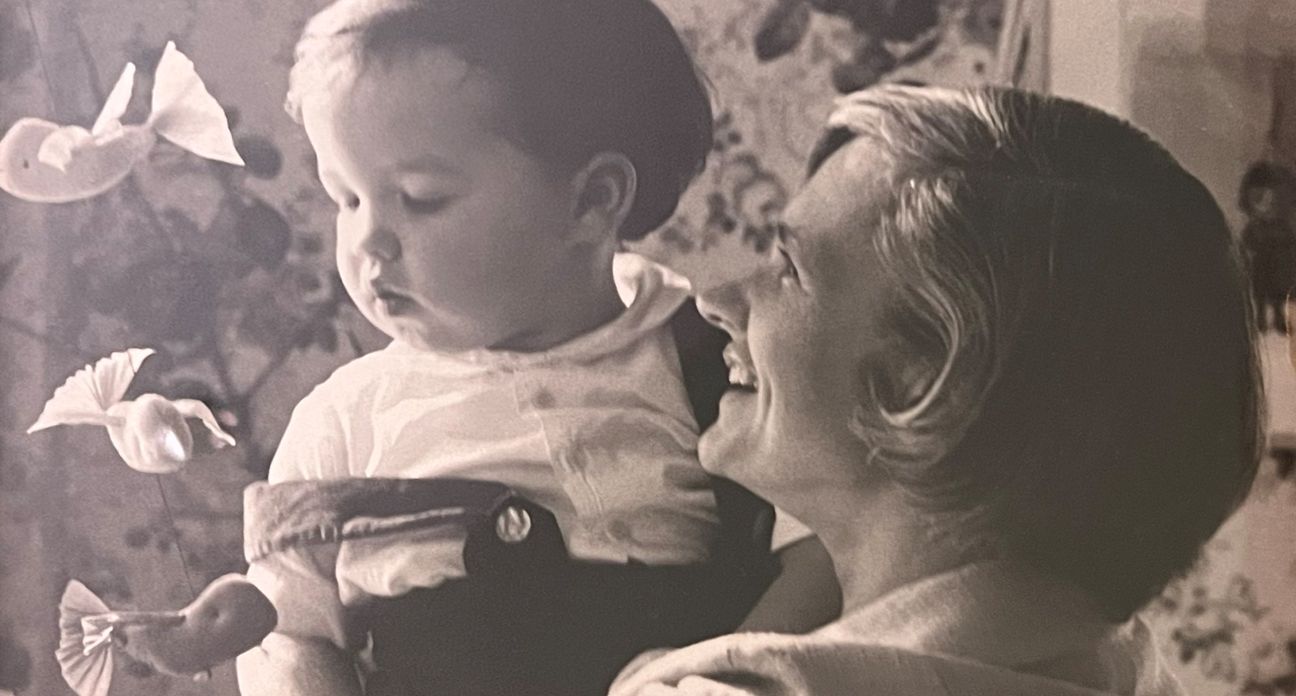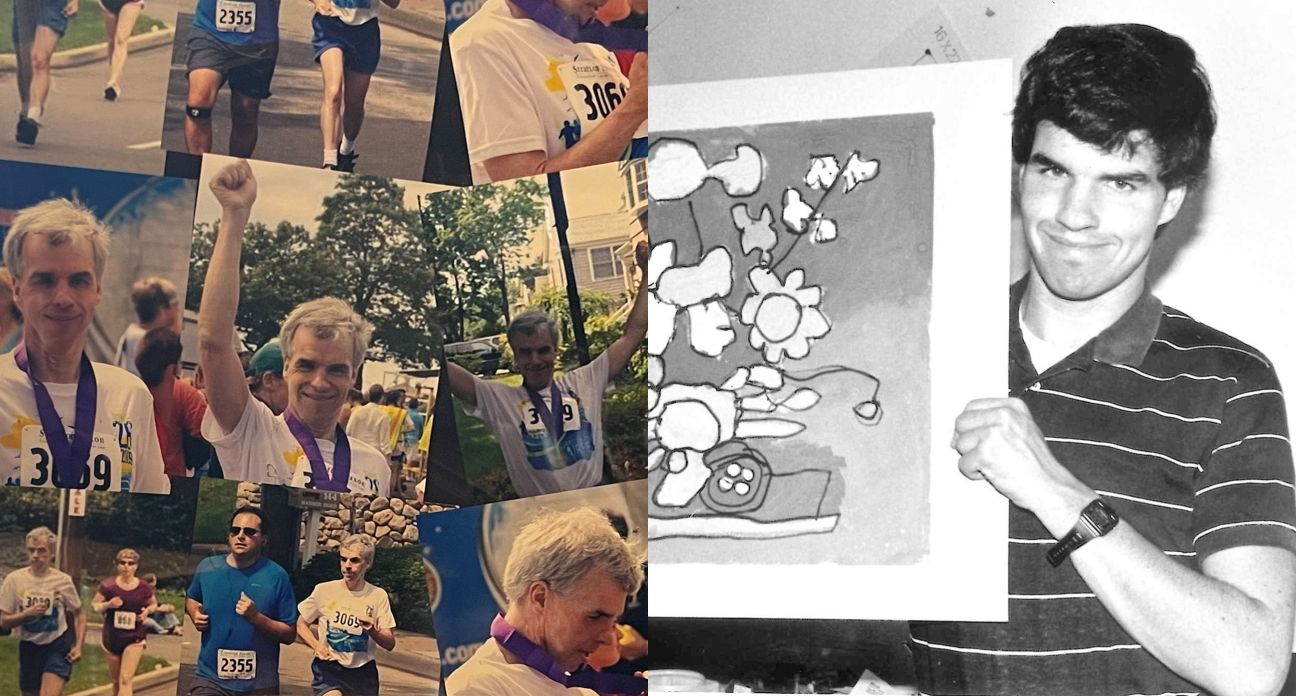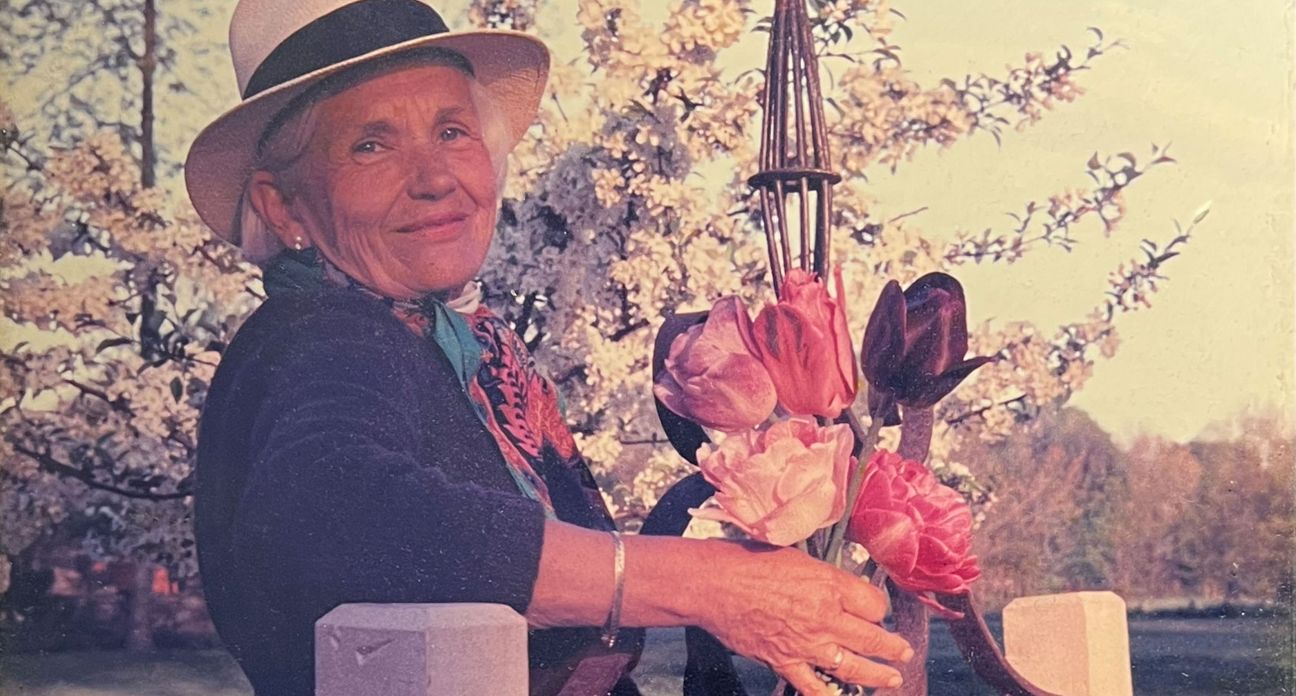COLLECTIVE ABA
Explore our high-quality, center-based Applied Behavior Analysis (ABA) therapy for individuals with autism, ages 3 to 21.

His father was a decorated veteran, his mother a Broadway actress, and one of his sisters a groundbreaking attorney. Meet Mickey Daly – a “Renaissance Man” who has channeled his familial influences into a life full of creative expression.
As the sun douses the sidewalk with light, Mickey Daly makes his way to the front entrance. He walks with a jovial step – a pleasant mixture of serenity and pep. Today, or any day when he goes here, Mickey doesn’t need an alarm clock. Excitement wakes him.
Mickey enters the building, and beelines towards a table in the right front corner that faces the street. This is his studio space, and the artist is about to create.
Paint is his primary medium, as evidenced by the strokes of acrylics all over his blue, buttoned-down polo shirt. Today, however, this diehard New York Yankee fan is throwing an artistic curveball by grabbing a set of watercolor crayons and getting to work on an alla prima piece.
Showing the focus and determination that has helped him overcome a life’s worth of challenges, Mickey’s hands dance across the paper, applying color with both straight lines and circular gestures, only pausing to dab more water from his palette onto the crayon. It’s very much like watching an orchestra conductor lead the ensemble with confidence and grace.
Mickey seems impressed with what he’s created so quickly, sporting an ear-to-ear grin as he exclaims, “This, this, is, a new one!”
Mickey is the namesake of his father, Michael.
The elder Daly was a World War II hero who received three Silver Stars, a Bronze Star, two Purple Hearts, and the U.S. military’s highest decoration for valor – the Medal of Honor. While known for his humility, and for rarely speaking of his time in the service, Michael’s bravery is captured in The New York Times bestseller, Against All Odds, by historian Alex Kershaw.
Just a teenager when he volunteered to fight, Michael was a member of the 1st Infantry Division that landed at Omaha Beach on D-Day, and participated in the American push through France and Germany. On April 19, 1945, he suffered a horrific injury when shot through the head and face. Doctors said that, had the bullet been a quarter of an inch higher, Daly would have died instantly. Instead, with his skull shattered and teeth blown out through his cheek, Michael had the wherewithal to place a pen into his throat to prevent his tongue from spasming and blocking his airway.
Due to the severity of his injuries, Michael didn’t return to the United States for more than a year after the incident. When he did, Daly was called to the White House. As Harry S. Truman presented the Medal of Honor, he leaned in and whispered to Michael, “It is more significant to receive the Medal of Honor than to be the President.” Also upon his return, Daly's hometown of Fairfield, Connecticut, threw him a parade in which hundreds of citizens showed the returning soldier their appreciation, despite the rain that poured throughout the event.
After retiring from the Army, Michael created his own manufacturer’s representative business, and was a significant philanthropist throughout his adulthood.
Despite having experienced so much, and having met so many, Michael Daly proclaimed in his later years that, “Mickey is the bravest person I ever knew.”

Mickey's mother was Maggie Daly.
Described as a “larger-than-life presence” by more than one person, Maggie firmly believed that creative expression – in all its forms – had a transformative power for both the artist and those who experienced the artist’s work.
After graduating college, she did a stint on Broadway, where she gained recognition for her indomitable energy. That translated well into her role as a doting mother to Sanford, Blair, and Deirdre – and became vital when it appeared that her fourth child, Mickey, had some difficulties.
“When Mickey was born, it wasn’t clear that he had challenges,” says Deirdre, “and it didn’t really surface until he was after a year old.” When there was an indication of some issues, Maggie and Michael took the baby boy to the top doctors in the area. The diagnosis that the parents heard was grim.
“He’ll never walk. He’ll never talk. You should institutionalize him,” was the consensus opinion of the physicians.
Maggie, described as having a fiercely optimistic spirit, said, “We will not be doing that.”

Deirdre is herself a ray of positivity – with an impressive list of accomplishments to boot.
After graduating Dartmouth College and Georgetown Law, she went on to become the first assistant U.S. Attorney in Connecticut. In 2014, she was the first woman presidentially appointed as Connecticut’s U.S. Attorney, by Barack Obama. Deirdre served 20 years with the Justice Department, and is now a Partner in the private law firm Finn Dixon & Herling.
Mickey lived with his parents until both passed away – Michael in 2008, and Maggie in 2012. At that time, Deirdre and her husband Al – who lived nine houses down the road – moved into the family residence in order to maintain the continuity of Mickey’s comfort and care.
Mickey is very close with Deirdre, Al, and their three sons. She notes his infectious positivity and giving nature among Mickey's most attractive qualities. “If you come home feeling a little grumpy or frustrated about something, and you have an interaction with Mickey, you always feel much better. The times that I've seen Mickey angry are extremely rare. He's just blessed with this kind, optimistic, calm spirit.” He also has impeccable manners.
Mickey is technologically savvy, and a prolific texter. Deirdre beams in saying that she often receives lengthy messages from Mickey – where he starts with, “Dear Dee,” describes what he’s accomplished today, and ends with, “Love, Mickey.” The texts are unexpected moments that Deirdre never tires of receiving.
She adds, “Mickey has always done more for us than we could ever do for him.”

Because of Maggie's defiance against the doctors' orders when Mickey was a baby, he has enjoyed a life of rich experiences.
Mickey earned his high school diploma from Andrew Warde High School, and contributed to several businesses as a reliable member of the local workforce. Very much an outdoorsman, Mickey has swum in the surf of Cape Cod, has cross country skied through the woods of Vermont, and has run four half marathons – as well as countless Fairfield Turkey Trot 5Ks. Now in his sixties, he still rides horses at a nearby farm every week, and the family’s 13-year-old golden retriever is the happy recipient of long walks with Mickey regularly.
Daly began joining the art programs at The Kennedy Center back in the early 1980’s. For four decades, he has distinguished himself as a prolific painter with an awe-striking body of work. Known for his eclectic style, Mickey has the enviable ability to move gracefully between genres and subject matter – from landscapes to abstracts, on large canvases or as intimate paper works.
Beyond the art-focused activities, Mickey – described as a social butterfly by The Kennedy Collective staff – partakes in many other programs. “I like doing, yoga, yoga here,” says Mickey. “And I like, and we, and we, and we do kary, we do kary, karaoke, karaoke, on Fridays.”
Says Deirdre, “If you look back at the forecast and who [Mickey] has become, there's an extraordinary difference. It's really been a blessing to see all the goodness that has come out of Mickey over the years.”
Mickey’s goodness is encapsulated in his favorite phrase, which those closest to him say he truly lives by: “Hakuna Matata,” or, “No Worries.” He’s put this mantra to the test, having survived cancer and other ailments.

Around the time Mickey began creating art at The Kennedy Center, the first strokes of another idea were placed on the proverbial white canvas.
Maggie Daly and a friend, Lynn McCrystal, began to think of ways that the full breadth and scope of artistic work being produced by artists with disabilities could be showcased. Their kindling concept sparked a calendar called “A Unique Perspective” – which, while displaying great art, was also a real effort to communicate with the larger community about who people with special needs are, and what they're capable of.
Maggie’s creativity was not relegated to just the support of the arts. Tales abound of her brilliant cooking, and as Mickey’s adult life reached a manageable routine, Maggie decided that she wanted a career. “She bought a green truck,” says Deirdre, “put a crew together, and became a landscape designer. She practiced deep into her eighties, and had a lot of work for both commercial and residential gardens.”
All the while, Maggie and friends kept dreaming big. Her involvement with The Kennedy Center provided ideas for expanded creative programs, created awareness in the public conscience for people with disabilities, and generated support in both the figurative and financial sense.
Today, “A Unique Perspective” calendars are an enduring and beloved tradition which celebrate the creativity and quality of the artists’ expression. They are sold at The Kennedy Collective-owned thrift store, Palm & Able, in Shelton, through its online store, and at various retailers throughout southern Connecticut.
2023 marks the fortieth edition of “A Unique Perspective.” The anniversary piece is dedicated to Mickey and Deirdre.

A few months after Maggie passed, Deirdre had a serendipitous brush with family friend McCrystal.
“We literally bumped into each other in a parking lot, and we talked about my mother. Tears were shared, and we both decided that we had to do something through The Kennedy Center in honor of my mother. And it happened.”
Paying homage to Maggie’s creative thinking, Lynn and Dierdre envisioned a place where a group with a particular interest in the arts could paint, and sing, and hold parades, and do drumming, and put on theater, and express themselves in a highly supportive environment.
That very place – the Maggie Daly Arts Cooperative – was born in 2014.
Located at the Read’s Artspace in downtown Bridgeport, MDAC – as the Arts Cooperative is affectionately called – features an open-concept creator studio, as well as an exhibition gallery. Deirdre credits Stephanie Campbell, then the first MDAC Program Manager and now The Kennedy Collective Director of Development and Donor Relations, as an initial guiding force. “She really seeded the magic there, and it has blossomed and grown since that time through a number of other managers. She was critical to the success in making MDAC what it is.”
Today, the Maggie Daly Arts Cooperative is a dynamic Day Support program designed for artists with disabilities who are ready to take the step of full participation in the arts – both independently and collectively – with peer artists, and artists in the community.
For Mickey, says Deirdre, “[MDAC] really created structure and meaning in his life, and for all the clients who go there.”

Back at the Arts Cooperative which bears his mother's name, Mickey is creating next to six other artists.
One artist is beginning a multi-colored abstract. Another is working on an intricate weave of fabric. And Mickey proudly holds up the “new one” that he created, for everyone to see.
The piece has four letters placed towards the left of the composition. There’s an O in maroon and a P in black, which are bookended by a H and an E in blue.
It simply reads: HOPE.
Later in the day, Deirdre smiles when she hears about Mickey’s creation. “One of the special things about my mother is that she was always tremendously optimistic about Mickey's potential. She was not to be deterred, and I think MDAC captures that same sense of hope. It's a place where people who have challenges come and create beautiful art. And it's completely open to the broader community. The broader community is invited in to see the art, to participate in the artistic creation, and to create their own art. I think there's tremendous magic to that place, and I think it's a place of tremendous hope.”
Because of folks like the Daly family, people with disabilities have more hope than ever before.
